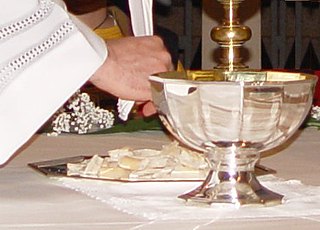
Agnus Dei is the Latin name under which the "Lamb of God" is honoured within Christian liturgies descending from the historic Latin liturgical tradition, including those of Roman Catholicism, Lutheranism and Anglicanism. It is the name given to a specific prayer that occurs in these liturgies, and is the name given to the music pieces that accompany the text of this prayer.
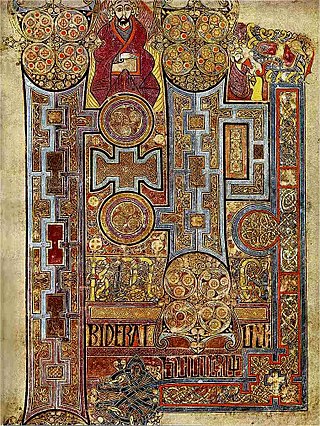
A Gospel Book, Evangelion, or Book of the Gospels, is a codex or bound volume containing one or more of the four Gospels of the Christian New Testament – normally all four – centering on the life of Jesus of Nazareth and the roots of the Christian faith. The term is also used for a liturgical book, also called the Evangeliary, from which are read the portions of the Gospels used in the Mass and other services, arranged according to the order of the liturgical calendar.
Septuagesima is the name for the ninth Sunday before Easter, the third before Ash Wednesday. The term is sometimes applied to the seventy days starting on Septuagesima Sunday and ending on the Saturday after Easter. Alternatively, the term is sometimes applied also to the period commonly called Shrovetide or Gesimatide that begins on this day and ends on Shrove Tuesday, the day before Ash Wednesday, when Lent begins.

Hallelujah is an interjection from the Hebrew language, used as an expression of gratitude to God. The term is used 24 times in the Hebrew Bible, twice in deuterocanonical books, and four times in the Christian Book of Revelation.
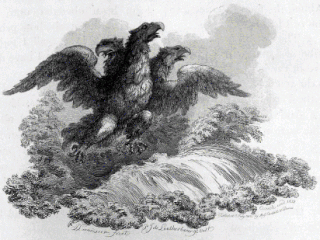
2 Esdras is an apocalyptic book in some English versions of the Bible. Tradition ascribes it to Ezra, a scribe and priest of the fifth century BC, but scholarship places its composition between 70 and 218 AD.
Alleluia is a phrase in Christianity used to give praise to God. In Christian worship, Alleluia is used as a liturgical chant in which that word is combined with verses of scripture, usually from the Psalms. This chant is commonly used before the proclamation of the Gospel. In Western Christianity, congregations commonly cease using the word Alleluia during the period of Lent but restore it into their services at Easter. The form of praise "Alleluia" is used by Christians to thank and glorify God; it finds itself present in many prayers and hymns, especially those related to Eastertide, such as "Christ the Lord is Risen Today".
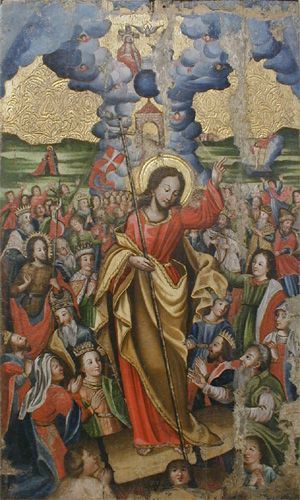
Eastertide or Paschaltide is a festal season in the liturgical year of Christianity that focuses on celebrating the Resurrection of Jesus Christ. Preceded by Lent, it begins on Easter Sunday, which initiates Easter Week in Western Christianity, and Bright Week in Eastern Christianity.
The Fraction or fractio panis is the ceremonial act of breaking the consecrated sacramental bread before distribution to communicants during the Eucharistic rite in some Christian denominations.
Hallelujah is an interjection used as an expression of gratitude to God.

A Christian burial is the burial of a deceased person with specifically Christian rites; typically, in consecrated ground. Until recent times Christians generally objected to cremation because it interfered with the concept of the resurrection of a corpse, and practiced inhumation almost exclusively. Today this opposition has all but vanished among Protestants and Catholics alike, and this is rapidly becoming more common, although Eastern Orthodox Churches still mostly forbid cremation.

In Eastern and Western Christian liturgical practice, the elevation is a ritual raising of the consecrated Sacred Body and Blood of Christ during the celebration of the Eucharist. The term is applied especially to that by which, in the Catholic Roman Rite of Mass, the Sacred Body of Christ (Host) and the chalice containing the Most Precious Blood of Christ are each lifted up and shown to the congregation immediately after each is consecrated. The term may also refer to a musical work played or sung at that time.

Edward Caswall, CO, was an Anglican clergyman and hymn writer who converted to Catholicism and became an Oratorian priest. His more notable hymns include: "Alleluia! Alleluia! Let the Holy Anthem Rise"; "Come, Holy Ghost"; and "Ye Sons and Daughters of the Lord".

The Gospel in Christian liturgy refers to a reading from the Gospels used during various religious services, including Mass or Divine Liturgy (Eucharist). In many Christian churches, all present stand when a passage from one of the Gospels is read publicly, and sit when a passage from a different part of the Bible is read. The reading of the Gospels, often contained in a liturgical edition containing only the four Gospels, is traditionally done by a minister, priest or deacon, and in many traditions the Gospel Book is brought into the midst of the congregation to be read.
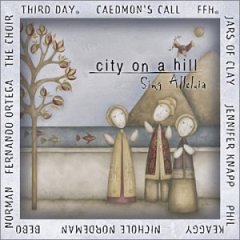
City on a Hill: Sing Alleluia was released in 2002. The album is the second in the City on a Hill series of compilation albums by popular contemporary Christian musicians. The album received the Gospel Music Association's Special Event Album of the Year award for 2003.
The Polyeleos is a festive portion of the Matins or All-Night Vigil service as observed on higher-ranking feast days in the Eastern Orthodox, Eastern Lutheran, and Byzantine Rite Catholic Churches. The Polyeleos is considered to be the high point of the service, and contains the reading of the Matins Gospel. Because of its liturgical importance, settings for the Polyeleos have been composed by Sergei Rachmaninoff and others.
"Song for Athene" is a musical composition by British composer John Tavener with lyrics by Mother Thekla, an Orthodox nun, which is intended to be sung a cappella by a four-part choir. It is Tavener's best known work, having been performed by the Westminster Abbey Choir conducted by Martin Neary at the funeral service of Diana, Princess of Wales, on 6 September 1997 as her cortège departed from Westminster Abbey.

O filii et filiae is a Christian hymn celebrating Easter. It is attributed to Jean Tisserand, a Franciscan friar.
Theos Kyrios is a psalm response chanted near the beginning of the Matins service in the Rite of Constantinople, observed by the Eastern Orthodox and Byzantine Catholic churches. It is based principally on Psalm 117, the refrain composed of verses v. 27a and 26a.
The Priests are a classical musical group, made up of three Roman Catholic priests from the Diocese of Down and Connor in Northern Ireland. Fr. Eugene and his brother Fr. Martin O'Hagan are originally from the village of Claudy, County Londonderry with the family now residing in Derry whilst Fr. David Delargy is from Ballymena, County Antrim.

"Lasst uns erfreuen herzlich sehr" is a hymn tune that originated from Germany in 1623, and which found widespread popularity after The English Hymnal published a 1906 version in strong triple meter with new lyrics. The triumphant melody and repeated "Alleluia" phrases have supported the tune's widespread usage during the Easter season and other festive occasions, especially with the English texts "Ye Watchers and Ye Holy Ones" and "All Creatures of Our God and King".











